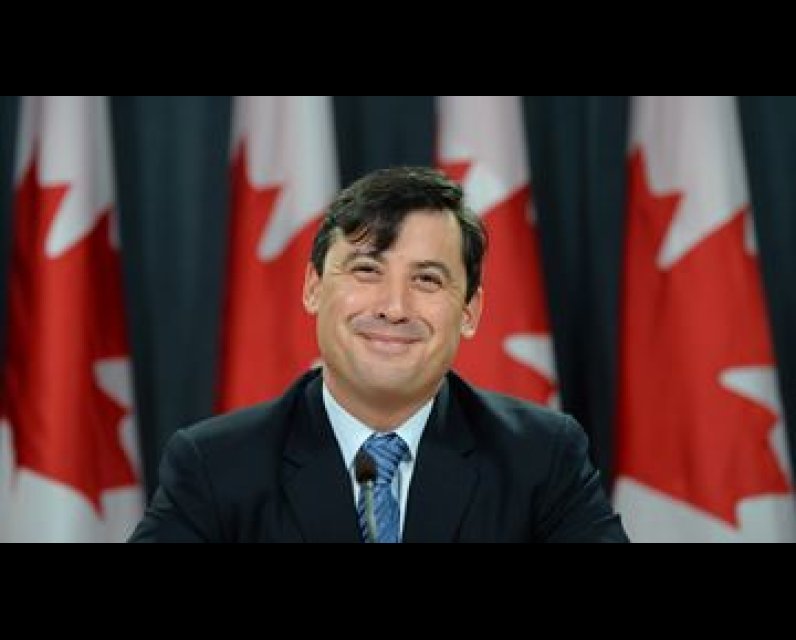Warning message
- Last import of users from Drupal Production environment ran more than 7 days ago. Import users by accessing /admin/config/live-importer/drupal-run
- Last import of nodes from Drupal Production environment ran more than 7 days ago. Import nodes by accessing /admin/config/live-importer/drupal-run
Unpublished Opinions
Unpublished.ca is a web portal on politics and current affairs in Canada. It provides the opportunity for Canadians to dig deeper into the issues affecting them, and to weigh-in on these issues in a persuasive and respectful way. Join the movement and have your say today!
MIchael Chong Introduces Reform Act 2013

Earlier this month Conservative MP Michael Chong introduced the Reform Act 2013 through a Private Members Bill. The Reform Act proposes to reform Parliament in three ways: Restoring local control over party nominations, strengthening caucus as decision-making body, and reinforcing the accountability of party leaders to their caucuses.
An interview with the Agenda's Steve Paiken follows below the letter.
The following is from Michael Chong's website...
Today (Dec. 3), I introduced the Reform Act, 2013. The Reform Act is an effort to strengthen Canada’s democratic institutions by restoring the role of elected Members of Parliament in the House of Commons.
First, I want to thank James Rajotte, M.P. for Edmonton-Leduc for seconding the bill. He is a veteran parliamentarian, respected by members from all parties. His support is important. I’d also like to thank all those colleagues and Canadians who, over the years, made many, many suggestions on how to improve Canada’s Parliament. And I’d like to thank the people of Wellington County and Halton Hills. Their support and encouragement over the years is the reason for this bill.
The proposals in the Reform Act would reinforce the principle of responsible government. It would make the executive more accountable to the legislature and ensure that party leaders maintain the confidence of their caucuses.
Le gouvernement responsable a été introduit au Canada dans les années 1840 par Robert Baldwin et Louis-Hippolyte LaFontaine, les réformateurs dont la contribution à un gouvernement responsable sont commémorés dans un moment derrière l’édifice du Centre sur la Colline du Parlement. Ensemble, ils ont conduit le premier gouvernement responsable au Canada. Le gouvernement responsable est le principe que le cabinet est responsable devant la Chambre des communes élue, et non pas nommés par le gouverneur en conseil.
I come from Wellington County. And in the County, there is the village of Elora where there is one of these historical plaques that dot the landscape. The plaque memorializes Charles Clarke, a member of the Legislature who moved to Elora in 1848 and who joined the political reformers of the 1840s in Ontario. He fought for representation by population, universal male suffrage and the secret ballot, as well as for responsible government. When he died in 1909, he had seen most of the policies he had advocated enacted into law.
I tell you this story to indicate that the ideas in this bill are not new ideas, they are very old ideas. They are the ideas that Canada’s democratic institutions are founded upon. If enacted, they would restore Parliament to the way it worked in Canada for many decades. Furthermore, many of the reforms proposed in the Reform Act are similar to current practices in other Westminster parliaments. The Reform Act would, however, codify into statute practices that are currently governed by unwritten convention.
Since Confederation, numerous and gradual changes have eroded the power of the Member of Parliament and centralized it in the party leaders’ offices. As a result, the ability of Members of Parliament to carry out their function has been curtailed by party leadership structures. The Reform Act proposes to address this problem by restoring power to elected Members of Parliament.
In Canada, citizens exercise only one franchise, one vote: A vote for their local Member of Parliament. And they rightfully expect that their local member be responsive to their views.
However, evidence demonstrates that Canadians are becoming increasingly disengaged with their elected Parliament. Recent public opinion research reveals that only 55 per cent of Canadians report being satisfied with the way democracy works in Canada,[i] dropping 20 per cent from 2004.[ii] Voter turnout during federal elections has reached an all-time low, and in the last federal election, four out of ten Canadians chose not to vote.[iii]
La loi sur la réforme permettra de réengager les citoyens en introduisant des réformes de bas en haut, ce qui donne une plus grande autorité de prise de décision pour les associations de circonscription, et de renforcer la responsabilisation au sein du caucus du parti parlementaire.
The Reform Act proposes three main reforms: Restoring local control over party nominations, strengthening caucus as decision-making body, and reinforcing the accountability of party leaders to their caucuses. The Reform Act amends two Acts of Parliament: The Canada Elections Act and the Parliament of Canada Act.
It is important to note that the Reform Act would not come into force until seven days after the next general election.
Michael Chong,
Member of Parliament
Wellington - Halton Hills
Check out for more information: www.reformact2013.ca
[i] Anderson, Kendall, et al., “Lost in Translation or Just Lost?: Canadians’ Priorities and the House of Commons”, Samara Democracy Report #5, Samara Institute, February, 2013. p.2.
[ii] Anderson, Kendall, et al., “Who’s the Boss?: Canadians’ Views on Their Democracy”, Samara Democracy Report #4, Samara Institute, 2012. p.1.
[iii] Bastedo, Heather, et al., “The Real Outsiders: Politically Disengaged Views on Politics and Democracy”, Samara Democracy Reports, Samara Institute, December, 2011. p.2.



Comments
Be the first to comment